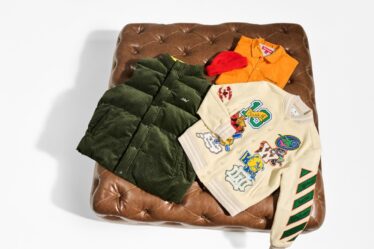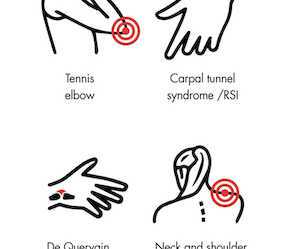
Calvin Klein may have gotten everyone talking about Jeremy Allen White’s abs in January, but it’s going to take a bit longer for that chatter to translate to a lasting sales impact.
The brand’s January campaign, which featured White in his underwear on a New York City rooftop, generated an astonishing amount of engagement on social media, and led to a 30 percent year-over-year increase in underwear sales in the week after it launched.
But on Monday, parent company PVH (which also owns Tommy Hilfiger) projected sales would decline 6 percent in the coming year, as weak wholesale demand and underperforming regions like Europe weighed. At Calvin Klein, fourth-quarter sales, including the month after the White ad ran, fell 8 percent in North America from a year earlier. The company’s stock dropped more than 20 percent on Tuesday.
The ads undoubtedly did their job, which was to bring some buzz back to a brand that was in need of a boost. The dismal sales figures are a reminder that turning around a brand as big as Calvin Klein takes time — and more than just one campaign.
PVH first rolled out its plan to drive profitable growth and increase desire for its brands in 2022, and there’s signs that it is starting to pay off, even if the company’s bottom line hasn’t quite caught up. A March 2023 campaign starring BlackPink’s Jennie Kim wearing the brand’s underwear and jeans also went viral, and the items featured in that campaign sold out within three days, Calvin Klein’s global chief marketing officer Jonathan Bottomley said during BoF’s annual tech summit last month.
Those engaged consumers are also flocking to the brand’s e-commerce site, where sales have increased more than 10 percent in the last four quarters. That’s helping PVH’s larger goal of boosting its direct-to-consumer channels to counter the decline in wholesale. It plans to bring core women’s items sold at wholesale, which are currently manufactured through a licensing partner, in-house in 2025. PVH’s net income tripled in 2023 to $663 million.
“In 2023 we fully focused on and strengthened the desirability of our two globally iconic brands, Calvin Klein and Tommy Hilfiger,” PVH’s chief executive Stefan Larsson said on a Tuesday earnings call. “During 2023 Calvin [Klein] drove more consumer engagement than at any other time in the history of the brand.”
Where Marketing Can Drive Business
Calvin Klein has been synonymous with ads that generate conversation — and sometimes controversy — since the 1970s. But in recent years the brand mostly relied on under-the-radar social media campaigns that featured a barrage of familiar faces, such as skater turned actor Evan Mock or musician A$AP Rocky.
But the newer campaigns, which, beyond White and Kim, feature stars like Michael B. Jordan, Idris Elba and Kendall Jenner, have sent the brand’s online profile skyrocketing. The White campaign drove 40 million eyeballs to Calvin Klein’s Instagram; engagement with the brand on the platform was up 85 percent year over year in January, Larsson said on the earnings call. A campaign starring FKA Twigs went viral in January after a ban on the ad from the UK’s Advertising Standards Authority was met with backlash from both consumers and the artist herself. (The ban was ultimately revoked last month.)
The brand has also extended its campaigns’ impact beyond titillating imagery. White’s January ads were auspiciously timed to drop at the start of awards season, and Calvin Klein dressed the “The Bear” actor for the Golden Globes, where he took home an award. In November, the company held a surprise concert with BTS’ Jungkook in Times Square off the back of his viral denim campaign that August.
“We think really hard about the talent. Not just in terms of reach and engagement, but the opportunity to create a cultural character, and show them in a way that you haven’t seen before,” Bottomley said at BoF’s tech summit last month. “We put a lot of focus on creating stories and creating content that people are going to want to spend time with.”
Though it’s too soon to call the brand turnaround complete, Calvin Klein’s e-commerce site is growing, an important spot for growth as PVH is set to invest in its DTC channels and reduce the number of digital platforms it sells to this year. The company expects its DTC sales to grow mid-single-digit percentage despite a larger decline in the overall business.
“You have to be able to take advantage of that cultural moment … I’m not saying a brand needs to have a splashy viral campaign every six months, but how do they stay culturally relevant,” said Calla Murphy, senior vice president of digital strategy and integrated marketing at Belardi Wong, a marketing-strategy firm. “It’s definitely a longer play.”



